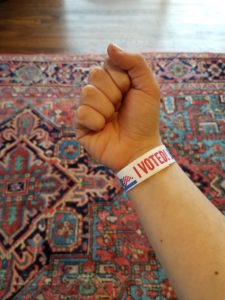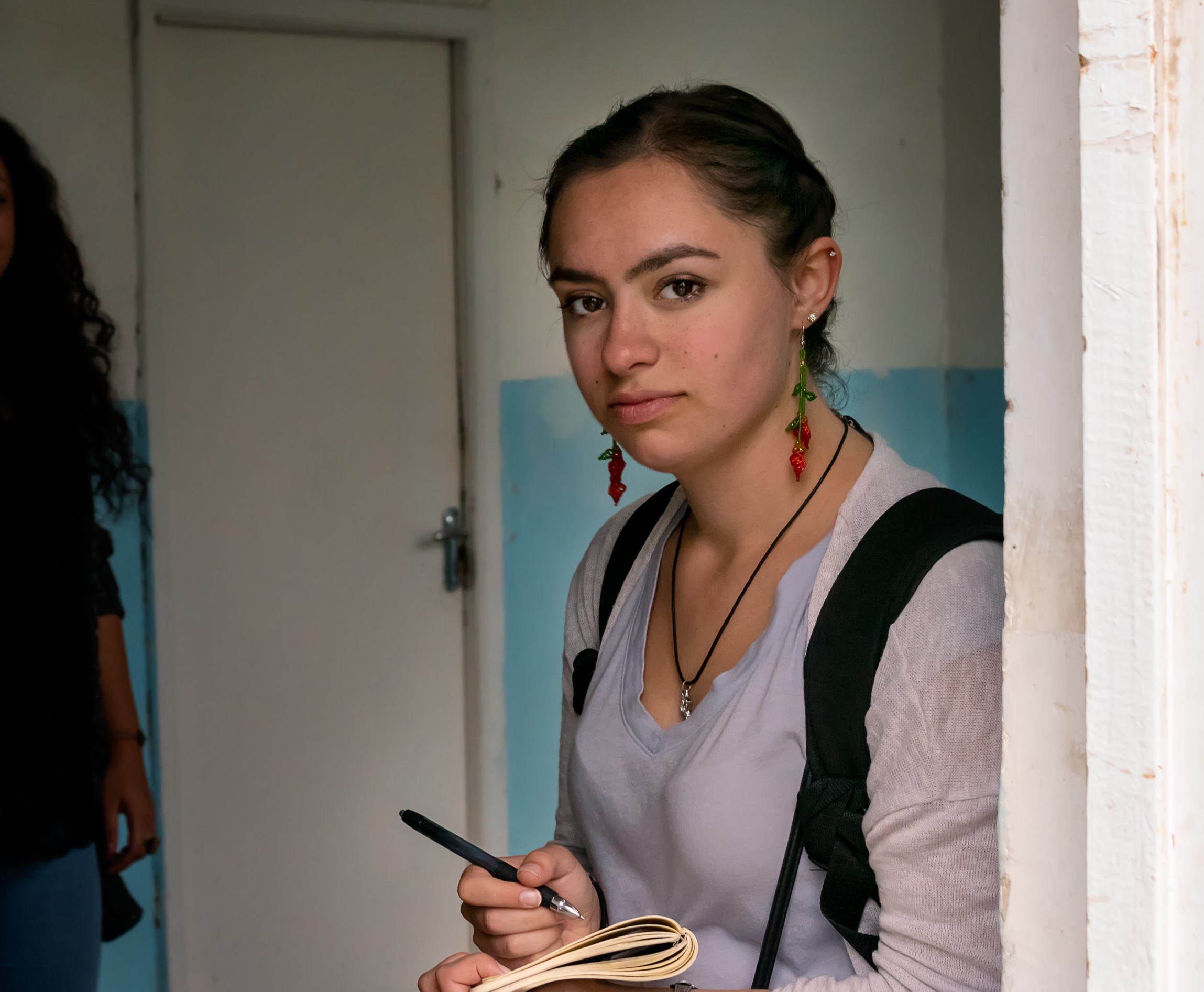
It’s been a crazy week to say the least. Seven days ago I was in class talking about memoir writing strategies and finals, and before I knew it, my university was telling all students to leave campus, and the United States had declared a state of emergency. A few days later Armenia declared a state of emergency, showing the way that this crisis affects our community around the globe. As Armenians, we know how to act in communities, which is more important now than ever. We are all in this together, but it’s important to remember that we are all affected differently and can support each other in different ways. I am lucky not to have been affected in any major way by the crisis. My schedule has been up in the air, but I still have my health, financial security, access to housing and healthcare and a supportive family living situation. But not everyone around me is nearly that lucky.
In the midst of the current crisis, I found myself at the polls on election day. Despite his criticism of the federal mishandling of the crisis, Illinois Governor JB Pritzker failed to postpone the primary elections in accordance with CDC recommendations of social distancing. Going to a local library to vote, I found myself in a line of around 50 people snaking around a small entry room. “This doesn’t really look like social distancing,” commented the woman behind me as she took her place in line.
The atmosphere at my polling place was calm and the process was efficient, but the lack of access to voting created by this crisis is deeply concerning. It leaves many who are elderly, immuno-compromised, infected, or simply don’t want to expose themselves to the risk of infection unable to vote and certainly made me wonder about my government’s commitment to democracy and its citizens.
Nevertheless, I personally was able to make it to the polls during a time when I believe that voting is more important than ever. With structures in place like the two-party system, super delegates and the electoral college, it’s easy to feel that there’s no point in voting at all. We as individuals have little choice in how our government runs, but that makes it all the more important to use the resources and voices that we do have to support each other.
Voting is part of a larger process of political participation, and the current crisis has shown how necessary that is. The crisis has laid bare gaping flaws in our current system, such as the lack of universal access to healthcare that has caused many with COVID-19 to go without testing and treatment and act as carriers to others. It has also shown us what governments can do, from the US House bill guaranteeing free COVID-19 testing to Armenia’s flights evacuating its citizens from infected areas.
In addition, the crisis has shown the impact that individual citizens can have on the well-being of their communities. With an airborne virus, one person’s decision to stay home can have a major impact on many lives. One person’s decision to donate their resources could provide others with access to basic necessities. It provides us with an important moment for each of us to reflect on our individual actions and the effects that they can have on ourselves and others.
For those of us who are able to self-isolate, COVID-19 has created a temporary new lifestyle prioritizing individual activities and digital connections. While practicing social distancing, we can read and inform ourselves on urgent developments and important causes around the world. The Armenian National Committee of America (ANCA) has shown an important example, encouraging social distancing while continuing to report on Armenian issues and giving our community concrete ways to act and promote causes we believe in. This and other organizing efforts have given us an opportunity to engage with others even in physical isolation and encourage us to think about what other things we can do for ourselves and our communities. The necessity for social isolation has shown the importance of digital organizing and the power we have to inform each other and spread our messages through new and creative means.



Be the first to comment